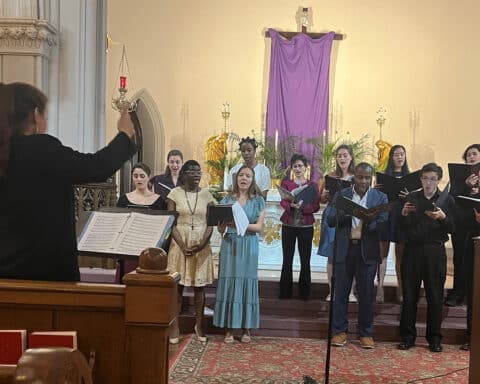One of my favorite prayers is composed by Blessed James Alberione, an Italian priest, Church communications visionary and founder of the Pauline family. Called “To Overcome the Predominant Passion,” it, in true Blessed Alberione style, gets straight to the point without beating around the bush, as our prayers (or at least mine) sometimes can.
It goes like this: “Jesus Master, you have said: ‘Truly I say to you: whatsoever you shall ask the Father in my Name, he will give it to you.’ So, in your Name I ask for victory over my predominant defect (pause). Here me, O Jesus.”
How marvelous is that? First, it forces you to identify — if you haven’t already — and then articulate the biggest barrier to holiness that you battle (that darn “predominant passion”); second, it exudes with confidence and trust in God that he will be able to bring about “victory” even when you might be doubting your own ability to harness your biggest faults (see: your predominant passion); and third, it contains a clear “ask” rooted in humility. When you pray that prayer, for example, you know exactly what the goal is, you know God will be there with you — and you know that the only blockade to success is one’s own self. In order to overcome our “predominant passion,” we have to be willing to put in the work. Alberione’s prayer is also bold and direct — maybe even a little demanding. The “so” makes me smile every time — as if we’re saying, “You promised this, Lord. It’s time to make good.”
Alberione was known for this type of boldness in prayer. He was a busy guy, hard at work in the early 20th century beginning a media apostolate that today contains five religious institutes, four aggregated groups and one lay association. He had a lot to accomplish in the name of the Lord. If he was to do it all, he had to make sure he was clearly asking for God to have his back.
A few years ago, I was struck by a similar appreciation for boldness in prayer while reading an article by Ava Lalor, editor of radiantmagazine.com.
“So often, out of fear of getting hurt, we hide our hearts or hold back from bringing everything to God, who already knows our hearts more intimately than we know them ourselves,” she wrote. “But if we look back over our lives, how many times has God proved to us that he is trustworthy, that he desires to give us good things? And how much more would he give us if only we would ask?
“Now, rather than ending my prayers with, ‘But only if you will it, Lord,’ I take comfort in the knowledge that he knows my heart and my desire to follow his will,” Lalor continued. “Instead of adding these words with my head down, afraid they won’t be heard, I look bravely into the eyes of my loving Father, knowing I can ask without fear. Because for me, not saying those words is an act of trust. It is an act that he can — and desires to — bring about great things in my life. And so I ask great things of him and lay out my heart, raw and real and messy before the God who loves me.”
Be bold and brave in asking the Lord for what you need! And when what you need is to overcome your own biggest flaws, even better.
Finally, what I appreciate about this short but very sweet little prayer is that it prevents one from throwing the ball into someone else’s court by asking God to assist with that other guy’s problem, rather than your own. “Lord, if you would only help so-and-so with their major problem of X, all would be well.” We all know the temptation, and the downright unhealthiness, of this kind of prayer.
In John 14, Jesus tells his disciples: “Whatever you ask in my name, I will do, so that the Father may be glorified in the Son. If you ask anything of me in my name, I will do it” (v. 13-14). This includes, as Blessed Alberione reminds us, helping us conquer our predominant passions. In this way, we may be able to grow in holiness and one day join Jesus Master, Way, Truth and Life in the kingdom that has been prepared for us.
Gretchen R. Crowe is the editor-in-chief of OSV News. Follow her on Twitter @GretchenOSV.





